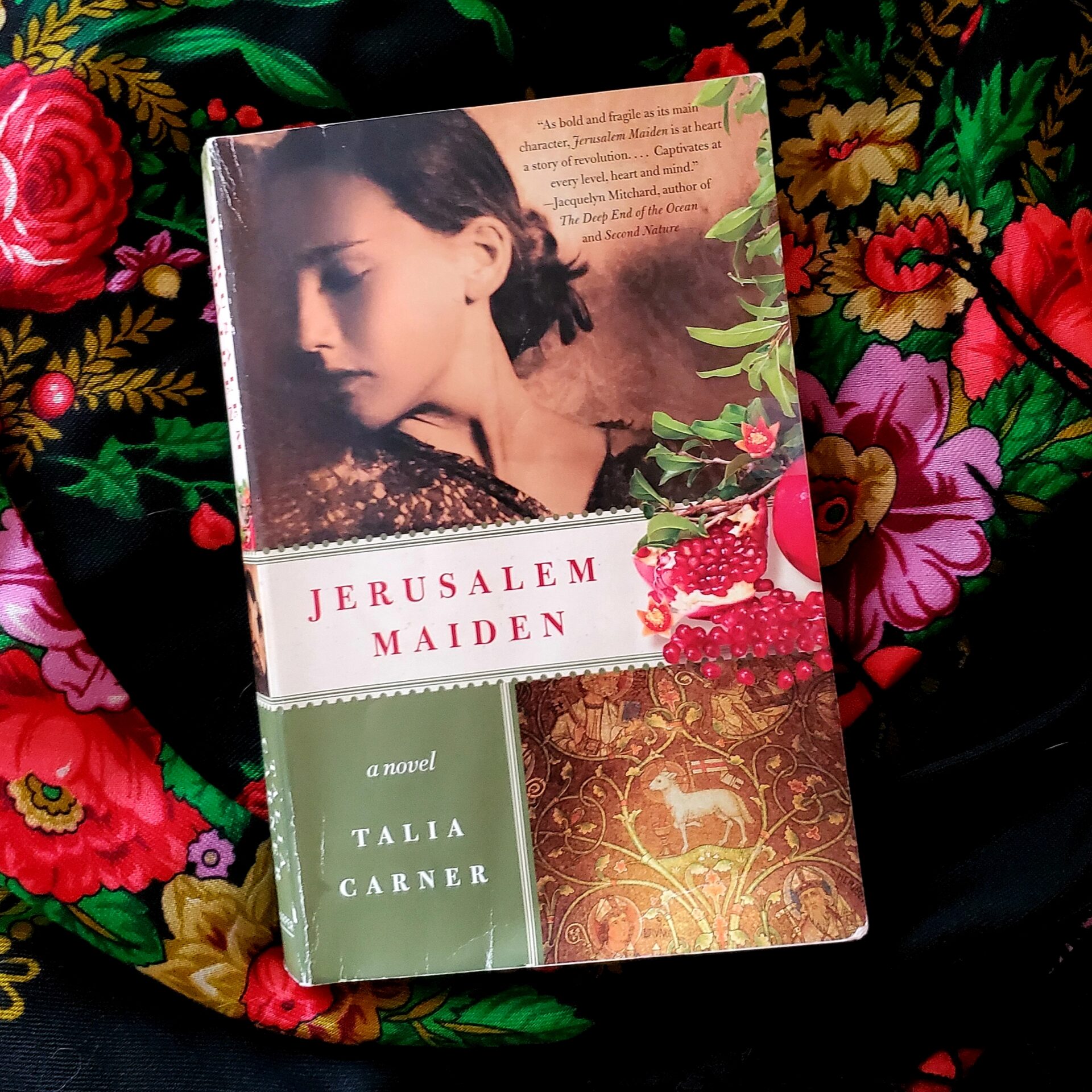Let me start off by saying that Jerusalem Maiden is going to piss off the feminists among us.
Author Talia Carner’s main character, Esther, is a woman from an ultra-Orthodox sect of Judaism called Haredi…in the early 1900s. So, to say that Esther has limited freedom is putting it mildly.
Reading Jerusalem Maiden was extremely eye-opening for me, in many ways. I love historical fiction, but I feel like the market is over-saturated with WW2 novels. Carner’s book set during the fall of the Ottoman empire was a refreshing change. It was great to see light shed on this often-overlooked period in history, which was full of hardship and strife due to the escalating tension between the Jews, Arabs, and Turks.
(Side note: did anyone else know the Ottoman Empire lasted 400 years?? And that it didn’t fall until 1922?? Yowza. Before reading this book, if you had asked me when it fell, I would have guessed sometime in the 1400s. *grimace*)
I was shocked by how little women were valued in 1900s Haredi culture. To give you an idea, Haredi — as portrayed in Jerusalem Maiden — believe they’re the “chosen of the Chosen” Jewish people. That roughly translates into preparing for the coming of the Messiah by studying and praying 24/7, and by living an extremely restricted way of life. There are a boatload of rules to follow, and most of them don’t make ANY sense to me.
As you’ve probably guessed, Haredi women get the shittier schtick in this whole deal — though, to be fair, the book does show how Haredi men aren’t given much freedom of choice, either.
Esther exemplifies all that a “Jerusalem Maiden” goes through in order to honor her people. There are horrific double standards that basically force women into a form of slavery, all under the guise of religion and adhering to God’s will. (It reminded me a lot of Death in the Covenant, which also exemplified how religion is used as a way to subjugate women.) I actually yelled at characters at various points while reading. That’s how infuriated I became on behalf of, well, Esther, but women everywhere.
Despite the harsh conditions of the novel, Esther’s sweet, tenacious, and honest spirit shines through. You empathize with her as she’s repeatedly torn between honoring her family, obeying her religion, and her unshakable urge to create art, which is strictly forbidden to Haredi. Eventually, her desire to to be an artist gets tangled up in her desire for a non-Haredi man, which further complicates her already impossible situation.
I also loved how Carner brings alive the ancient city of Jerusalem and the bustling, modern (in comparison) city of 1920s Paris. Although you’re witnessing a war-torn Jersalem, you’re able to see Esther’s beloved homeland through her adoring eyes. Her keen sense of artistry brings to life every fruit and flower, every crumbling stone wall and dusty foot path, until you’re completely enchanted by the magic still to be found there. And, when the story moves to Paris, you’re dazzled by its redolent streets and cafes, the throngs of people, and, of course, the magnificent art scattered around the city.
Although I ended up loving this jewel of a novel, I admit that Jersualem Maiden is a little tough to get through at first. The first few chapters are pretty brutal, both in terms of what Esther directly endures and of what’s expected from a woman in her religion. However, stick it out and you’ll be rewarded with a poignant and beautiful story about a woman who doesn’t allow her true self to be suppressed, despite all the odds working against her.
What historical fiction have you read lately? I’d love to hear about it in the comments below!
And, be sure to check back in for my book-inspired recipe: Rose Honey Cake!




































































































































































































Wow. This book sounds really good. Tough but good. I’m really intrigued to know more. I wonder what she went through.
Judaism, especially Orthodox and Hasidic populations intrigues me. I’ve worked with so many at the hospital, but there’s so much to learn about with their culture. I don’t think I’d ever fully understand it but I try to learn! I’ve never heard of Haredi though. Adding this book to my list!
I admittedly almost stopped reading it at first — because the beginning part was so harsh and heartbreaking. The premise of the book sounded so good, though, so I kept going. Thank goodness for my 50 page rule!! It’s saved me from missing so many great books, haha. I’m so glad I kept reading this one. I also find strict religious cultures fascinating, and I’m always drawn to Judaism in general. I’m an Old Testament kinda gal. 😀 Definitely give this book a read!! You might also enjoy The Sisters Weiss, which focuses on Orthodox Judaism in Brooklyn (http://www.wellreadtart.com/2020/04/07/quick-look-books-historical-fiction-april-2020/). Oooh, maybe that could be inspiration for a Literary Date?? 😀
I will definitely read Jerusalen Maiden, especially since you mentioned Paris in the 1920’s was part of the book. In my mind Paris during that time peroid had a huge renissance and influx of artists and people who were resticted by race and gender in other countries. (especially from the restriction of alcohol and lack of artistic exposure for all people in the US). I’ve mentioned to you A Gentleman in Moscow by Amor Towles. It also takes place in that time frame right after World War I. (which I too feel has been overtaken by World War II books). Thank you for your review. (and yes I will try my hand at that lovely rose honey cake recipe.)
Hi Elle! Yes! I still need to read A Gentleman in Moscow. It’s on the list for 2021. 🙂 And, I’ll be sure to give you a shout-out in my review.